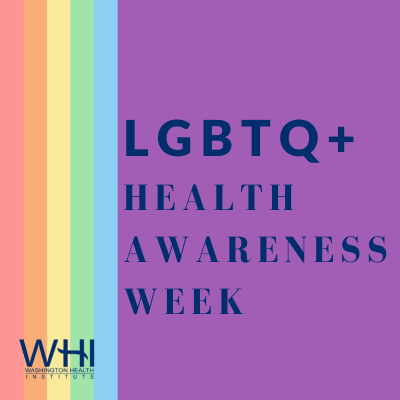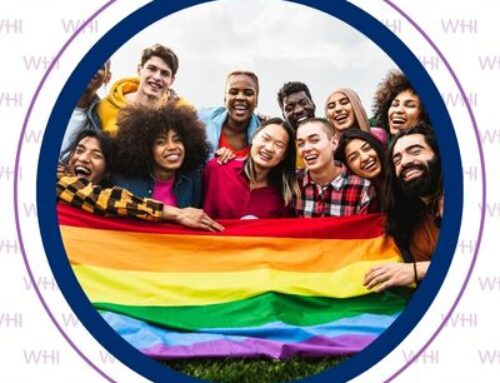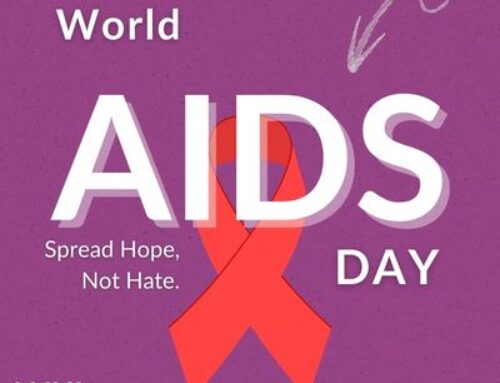National LGBTQ+ Health Awareness Week
LGBTQ+ Health Awareness Week was started in 2003 and occurs during the last week of March. To raise public awareness regarding unique health needs and disparities in the LGBTQ+ community, the National Coalition for LGBTQ+ Health created LGBTQ+ Health Awareness Week. This week is intended to bring attention to the devastating cycle of discrimination and health disparities that affect the lesbian, gay, bisexual, transgender, queer or questioning (LGBTQ+) community.
 Why is Awareness Needed?
Why is Awareness Needed?
LGBTQ+ people encounter discrimination in employment, relationship recognition and insurance coverage regularly; consequently, they are less likely to be able to afford vital health care than their straight and non-transgender neighbors. For LGBTQ+ people of color, barriers to care and health disparities are even more significant.
The mission is to create positive action and educate the public. There is an ongoing need for culturally competent healthcare and a growing need for behavioral health options. Setting aside this week to reach out to healthcare professionals, LGBTQ+ individuals, policymakers, and the general public with information and ideas for change, the hope is to change healthcare for the LGBTQ+ community.
Lack of Healthcare Professionals
The LGBTQ+ community has been facing health disparities for years. Many LGBTQ+ people face difficulty even finding healthcare providers trained and knowledgeable about their needs. There remains a scarcity of competent healthcare providers and services for LGBTQ+ people in many areas of the U.S. People who identify as LGBTQ+ are part of a community, but they are not one person. Like any group, they have specific vulnerabilities and health concerns, but many health care providers are still unaware of the specific health disparities that individuals face. As a whole, they are put at a higher risk for a range of issues from addiction and depression to chronic conditions and cancer because healthcare providers do not know enough about their individual concerns.
Discrimination in Healthcare
Other LGBTQ+ people encounter direct discrimination from insurance providers or healthcare providers. These issues alone cause LGBTQ+ people to skip or delay care due to concerns about how they will be treated. ALL people need and deserve quality health care services, but many cannot find them. Research suggests that LGBTQ+ individuals face health disparities linked to societal stigma, discrimination, and denial of their civil and human rights. Discrimination against LGBTQ+ persons has been associated with high rates of psychiatric disorders, substance abuse and suicide.
Benefits of Equity in Healthcare
The LGBTQ+ health disparities are evident, as are the devastating effects on the LGBTQ+ community and their families. Eliminating LGBTQ+ health disparities and enhancing efforts to improve LGBTQ+ health are necessary to ensure that LGBTQ+ individuals can lead long, healthy lives. The many benefits of addressing health concerns and reducing disparities include reductions in disease transmission and progression, increased mental and physical well-being, reduced health care costs and increased longevity.
What Can You Do?
- Create an atmosphere in which someone who is LGBTQ+ feels safe sharing information about their identity and issues they face
- Implement clear policies against discrimination in your places of work and play
- Financially support LGBTQ+ support groups
- Learn more about healthcare disparities of LGBTQ+ individuals
- Advocate for equity in healthcare
How Washington Health Institute Is Different
For Washington Health Institute, inclusivity in healthcare is at the forefront of everything we do. Patients of different races, cultures, gender identities and sexualities have been shown to feel unwelcome and undervalued in healthcare spaces. Our team at WHI hopes to change that by making all our patients feel safe and respected. Not only do we welcome patients from all walks of life, but we take active steps to work with you as an individual to give you the comprehensive, compassionate and inclusive care you deserve.
Contact us today, online or by phone at 202-525-5175. We are here for you!




